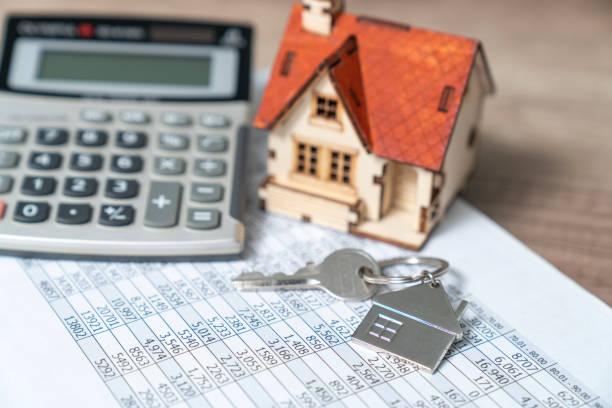How many mortgage payments can you miss before foreclosure? Navigating the world of homeownership comes with its share of responsibilities and financial commitments.
One of the most crucial obligations that homeowners face is making timely mortgage payments.
Your mortgage payment is not just a regular bill; it’s a commitment to maintaining ownership of your home and safeguarding your investment.
However, life’s uncertainties can sometimes lead to financial challenges that make meeting these payments difficult.
This raises an important question: How many mortgage payments can you miss before foreclosure becomes a looming concern?
Understanding the relationship between missed mortgage payments and the foreclosure process is essential for anyone who holds a mortgage.
While each situation may have unique factors, there are common threads that tie them together.
In this article, we’ll delve into the intricacies of missed mortgage payments.
By gaining a clear understanding of these aspects, you can equip yourself with the knowledge needed to protect your home, make informed decisions, and work towards a more stable financial future.
Also Read:
What Is a Wraparound Mortgage? (All You Should Know)
Can You Add Someone to a Mortgage?
How Many Mortgage Payments Can You Miss Before Foreclosure?
Missing mortgage payments can have serious repercussions, potentially leading to foreclosure, a process where the lender reclaims the property due to non-payment.
The exact number of missed payments before foreclosure varies depending on several factors, including the terms of the mortgage, local laws, and the lender’s policies.
Typically, mortgage agreements include a grace period, usually around 15 days, during which a payment can be made without incurring late fees.
After this period, the lender may charge late fees and report the delinquency to credit bureaus.
If payments remain unpaid, the lender will issue a notice of default, marking the beginning of the foreclosure process.
In most cases, foreclosure proceedings start after 3 to 6 missed payments, but this timeline can differ based on state regulations and the lender’s approach.
Homeowners facing financial difficulties are encouraged to communicate with their lender as early as possible to explore alternatives such as loan modifications, forbearance, or refinancing.
These options can potentially help prevent foreclosure and provide temporary relief.
Seeking advice from housing counselors and legal professionals is also advisable to understand the specific options available and potential outcomes of missed payments.
Overall, staying informed about your mortgage terms, local laws, and available assistance is crucial in avoiding the dire consequences of foreclosure.
The Importance of Timely Mortgage Payments
Timely mortgage payments are not only a financial obligation but also a cornerstone of maintaining homeownership and financial stability.
Meeting your mortgage payment deadlines is vital for several reasons.
Firstly, consistent on-time payments contribute to building a positive credit history.
Strong credit history is crucial for obtaining favorable interest rates on future loans and credit cards, as well as for securing housing and employment opportunities.
Secondly, missed mortgage payments can trigger a chain of negative consequences.
Late fees, penalties, and additional interest can accumulate, exacerbating your financial burden.
Moreover, repeated delinquency could lead to a damaged credit score, making it harder to qualify for loans or negotiate reasonable terms.
Thirdly, the ultimate consequence of consistently missed payments is foreclosure.
Falling behind on your mortgage jeopardizes your ownership of the property.
Foreclosure not only means losing your home but also enduring the adverse impact on your credit score that can persist for years.
Overall, timely mortgage payments uphold your financial health, protect your creditworthiness, and preserve your investment in homeownership.
It’s essential to budget responsibly, prioritize mortgage payments, and seek assistance if facing financial difficulties.
This commitment not only safeguards your home but also ensures a more secure financial future.
Steps to Take If You’re Struggling to Make Payments
If you find yourself struggling to make mortgage payments, taking proactive steps can help you navigate financial challenges and potentially avoid foreclosure.
- Contact Your Lender: Reach out to your lender as soon as possible. Explain your situation honestly and inquire about available options. Some lenders offer temporary relief through forbearance or repayment plans.
- Explore Loan Modification: Discuss the possibility of modifying your loan terms with your lender. This could involve lowering your interest rate, extending the loan term, or even deferring a portion of the principal balance.
- Consider Refinancing: If your credit is still intact, explore refinancing options to secure a lower interest rate or more manageable terms. This could reduce your monthly payment burden.
- Research Government Programs: Investigate government-sponsored programs like the Home Affordable Modification Program (HAMP) or Home Affordable Refinance Program (HARP), which are designed to assist struggling homeowners.
- Seek Housing Counseling: Consult a HUD-approved housing counselor who can provide guidance and help you understand your options more clearly.
- Create a Budget: Analyze your finances to create a realistic budget. Cut unnecessary expenses and allocate funds to cover essential bills, including your mortgage.
- Sell or Rent Your Property: If staying in the home is no longer feasible, consider selling or renting it out. This can provide relief from the financial strain.
- Avoid Scams: Be cautious of foreclosure rescue scams that prey on vulnerable homeowners. Always verify the legitimacy of any offers or assistance.
- Legal Consultation: If you’re facing imminent foreclosure, seek legal advice to understand your rights, responsibilities, and potential alternatives.
- Document Everything: Keep thorough records of communication with your lender, financial documents, and any steps taken. This can be valuable if you need to prove your efforts later.
Remember, acting quickly and seeking assistance early can increase your chances of finding a solution to your mortgage payment challenges and preserving your homeownership.
Also Read:
Can You Lose Your House with a Reverse Mortgage?
Can You Have a Cosigner on a Mortgage?
Conclusion
Understanding the relationship between missed mortgage payments and foreclosure is paramount for responsible homeownership.
The exact number of missed payments before foreclosure varies, but the consequences of falling behind on mortgage obligations are consistent.
Timely payments maintain credit health, financial stability, and home ownership. If struggling to make payments, taking immediate action is vital.
Communicating with your lender, exploring options like loan modification, and seeking housing counseling can offer a lifeline.
Remember, each situation is unique, but being proactive and well-informed empowers you to navigate challenges, secure assistance, and work towards a brighter financial future.













